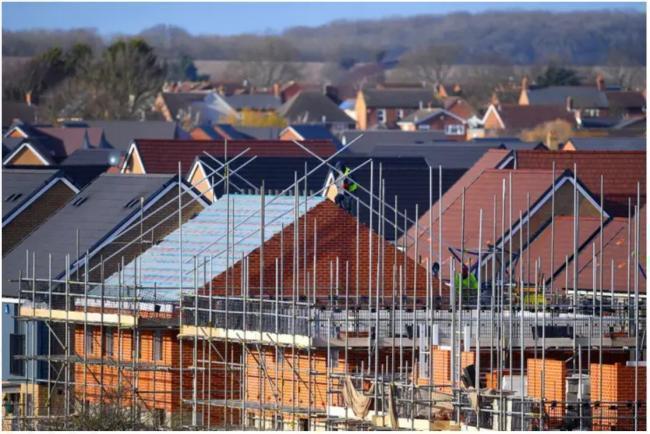From artisanal crepes to rebellious cheesecake waffles, Reading's breakfast rebels are transforming morning meals. These seven spots will revolutionize how you start your day.
Affordable Housing Crisis Looms in Bracknell Forest
Bracknell Forest is facing a potential shortage of affordable homes, according to recent reports. Officials have raised concerns, indicating there is a "high risk" that the area will fall short of its affordable housing targets for the current year. This alarming situation highlights the ongoing challenges in providing accessible housing options for residents in the region.

Developers Face Hurdles in Meeting Housing Goals
The issue appears to stem from difficulties in incorporating affordable units into new developments. Affordable housing providers are reportedly reluctant to take on homes in some new projects, contributing to the potential shortfall. This reluctance suggests underlying problems in the current approach to affordable housing provision in Bracknell Forest.
Affordable Housing Providers Reluctant to Participate
The core of the issue appears to be the reluctance of affordable housing providers to take on homes in some new developments within Bracknell Forest. This hesitancy is contributing significantly to the potential shortfall in affordable housing units for the current year. While the exact reasons for this reluctance are not explicitly stated in the available information, it suggests there may be underlying challenges or concerns with the current approach to affordable housing provision in the area.
High Risk of Missing Affordable Housing Targets
Officials in Bracknell Forest have raised serious concerns about the likelihood of meeting the area's affordable housing targets for the year. The situation has been categorised as "high risk," indicating a significant probability that the region will fall short of its goals. This assessment underscores the urgency of the issue and the need for immediate attention from local authorities and stakeholders involved in housing development.
Implications for Local Residents
The potential shortage of affordable homes in Bracknell Forest could have far-reaching consequences for local residents. While specific details about the impact are not provided in the available information, it's clear that a lack of affordable housing options can create challenges for individuals and families seeking reasonably priced accommodation in the area. This situation may exacerbate existing housing pressures and potentially affect the community's overall well-being and economic stability.
Need for Strategic Solutions
The current state of affairs calls for a comprehensive review of Bracknell Forest's affordable housing strategies. While the source material does not outline specific solutions, it's evident that addressing this "high risk" situation will require collaboration between local authorities, developers, and affordable housing providers. Potential areas for exploration might include incentives for developers to incorporate affordable units, reassessment of current policies, and innovative approaches to make affordable housing more attractive to providers.
Monitoring and Future Outlook
As the year progresses, it will be crucial for Bracknell Forest officials to closely monitor the development of affordable housing units. The identification of this "high risk" suggests that there are mechanisms in place for tracking progress towards housing goals. However, the current outlook appears challenging, and it remains to be seen how the situation will evolve in the coming months. Stakeholders will need to remain vigilant and potentially consider adaptive strategies to mitigate the risk of falling short of affordable housing targets.
Addressing the Affordable Housing Shortfall
The looming affordable housing crisis in Bracknell Forest demands immediate attention and innovative solutions. While the exact causes of the current situation are complex, it's clear that a multi-faceted approach will be necessary to overcome the challenges faced by developers and housing providers.
Local authorities must take a proactive stance in facilitating discussions between all stakeholders involved in the housing sector. This could include organising roundtable meetings with developers, affordable housing providers, and community representatives to identify specific barriers and brainstorm potential solutions.
Exploring Alternative Funding Models
One avenue worth exploring is the implementation of alternative funding models for affordable housing projects. This could involve public-private partnerships, community land trusts, or innovative financing mechanisms that make affordable housing development more attractive to both builders and providers.
Local government might also consider revising existing policies to create more favorable conditions for affordable housing construction. This could include streamlining the approval process for developments that meet certain affordability criteria or offering tax incentives for projects that exceed affordable housing targets.
Long-term Planning and Sustainability
To prevent similar crises in the future, Bracknell Forest officials should prioritise long-term planning for affordable housing needs. This could involve conducting comprehensive housing needs assessments, forecasting future demand, and developing a strategic plan that accounts for changing demographics and economic conditions.
Additionally, focusing on the sustainability of affordable housing projects could help attract more providers. Implementing energy-efficient designs and sustainable building practices could reduce long-term operating costs, making these properties more appealing to housing providers and more affordable for residents in the long run.
Community Engagement and Support
Addressing the affordable housing shortage will require broad community support. Local authorities should consider launching public awareness campaigns to educate residents about the importance of affordable housing and its impact on community well-being. Engaging the community in the planning process and addressing concerns proactively could help reduce resistance to new affordable housing developments.
By taking a comprehensive and collaborative approach to this challenge, Bracknell Forest has the opportunity to not only meet its current housing targets but also create a more resilient and inclusive housing market for the future.